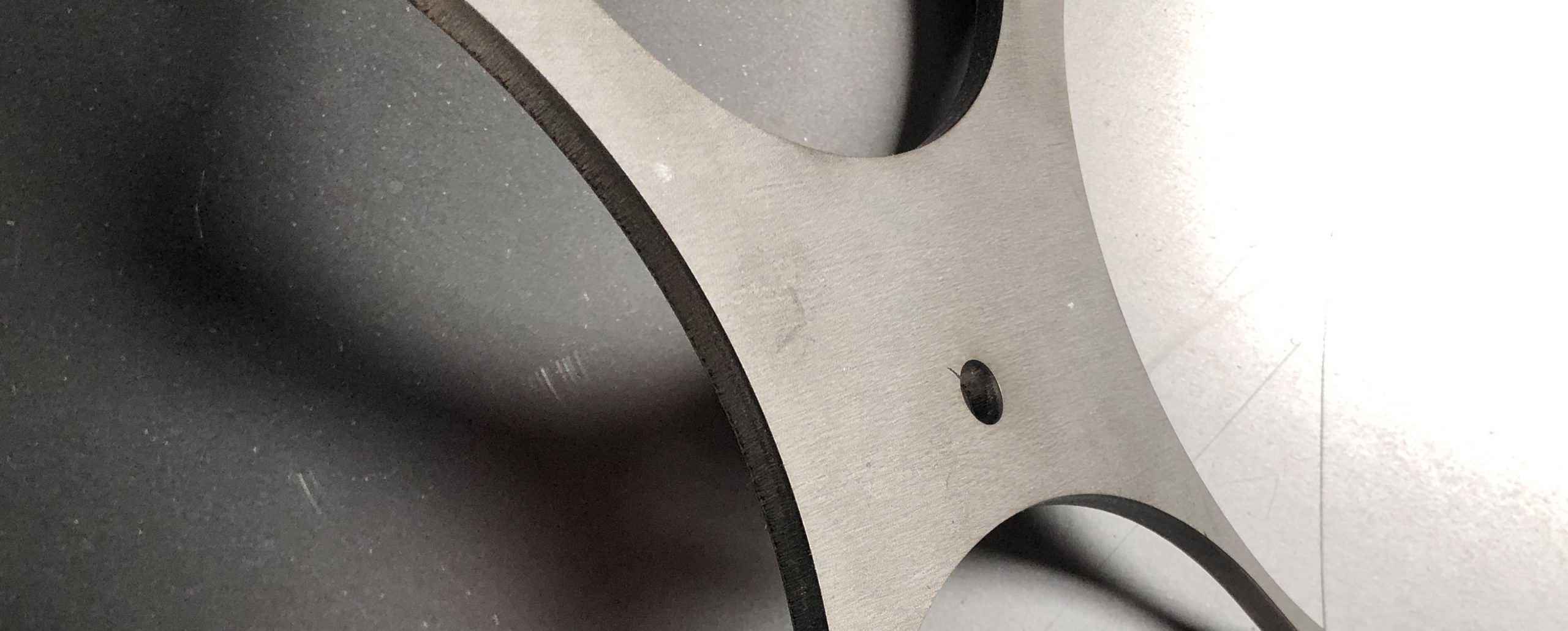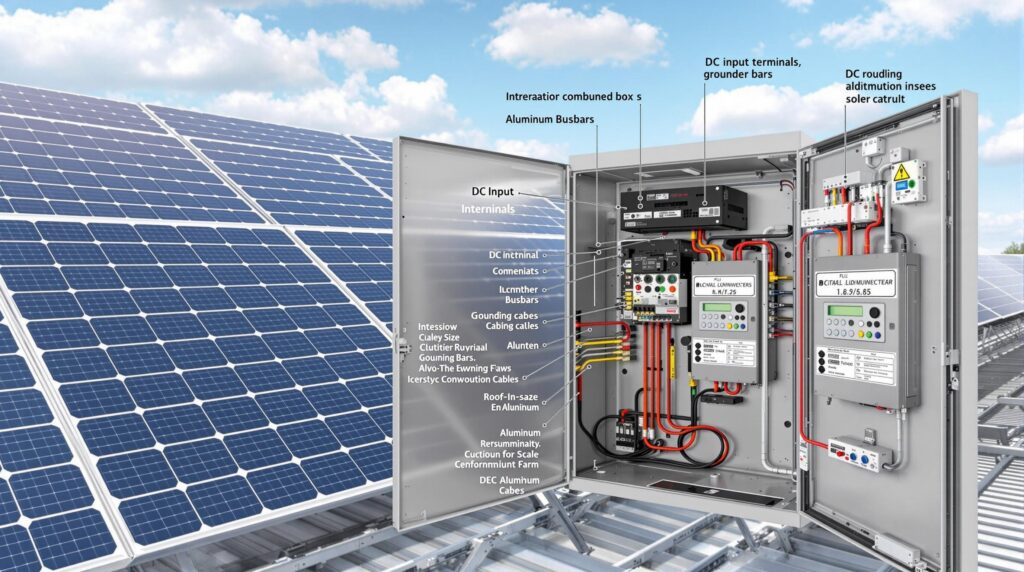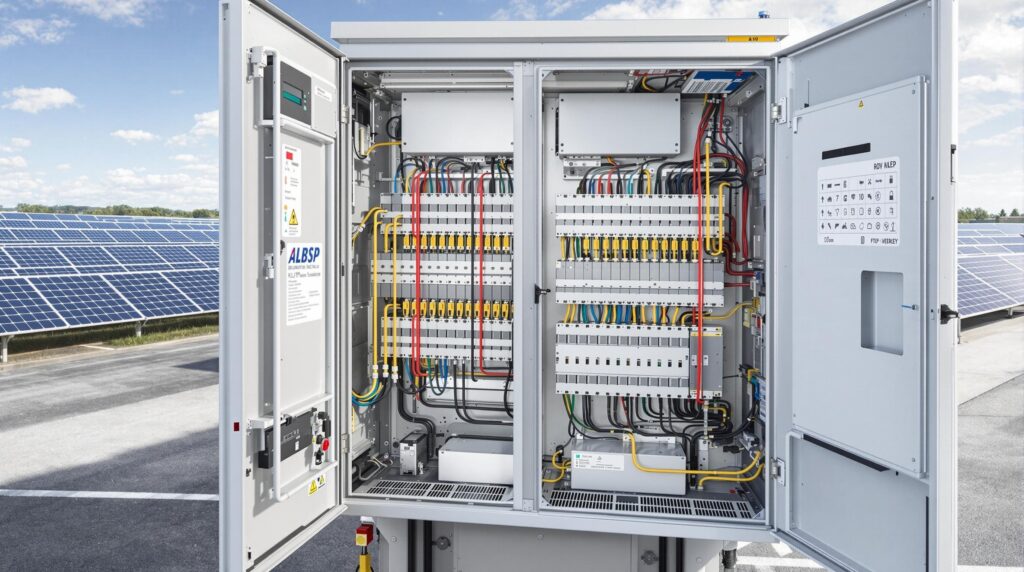Aluminum Busbars in Solar Energy Systems: Optimizing Aluminum and Aluminium Busbars for Solar Power and Photovoltaic Panels
At AP Precision Metals, we understand the critical role of efficient electrical conductors in renewable energy solutions. Our expertise in manufacturing aluminum busbars provides optimized solutions for high-current applications in solar power and photovoltaic panels. Aluminum busbars offer unmatched advantages in terms of conductivity, weight, and cost-effectiveness, making them ideal for maximizing the performance and reliability of solar energy systems. Discover how our precision-engineered aluminum busbars can enhance the efficiency and sustainability of your solar power projects.
Advantages of Aluminum Conductors in Solar Energy Systems
Aluminum busbars represent an essential component in solar energy systems, boasting significant advantages when incorporated into renewable energy solutions. These aluminum conductors conduct electricity efficiently, ensuring effective energy transfer within solar cells and panel systems. One of the primary reasons why aluminum is preferred in solar energy systems is its capacity to reduce power loss, thereby maximizing the overall efficiency of solar panels.
At AP Precision Metals, we understand that cost savings play a critical role in the adoption of solar energy solutions. By leveraging aluminum busbars, users can significantly benefit from reduced material costs. Compared to other metals, aluminum is not only abundant but also more affordable, making it an optimal choice for energy-saving materials in solar power systems. Moreover, the lightweight nature of aluminum conductors facilitates easier installation and integration into existing power systems, further enhancing the cost-effectiveness.
Another key advantage of using aluminum busbars in solar energy systems is their durability and longevity. Aluminum is resistant to corrosion, which ensures that the busbars can withstand harsh environmental conditions typically associated with outdoor solar installations. This resilience translates to lower maintenance costs and longer-lasting energy systems, offering long-term savings for users who invest in this renewable energy technology.
Furthermore, the adaptability of aluminum conductors makes them compatible with various solar panel configurations. Whether it’s for residential, commercial, or large-scale industrial applications, aluminum busbars can be customized to meet specific requirements, ensuring seamless integration and optimized performance. As leading busbar manufacturers, AP Precision Metals takes pride in delivering high-quality aluminum conductors that meet the stringent standards of the renewable energy industry.
The usage of aluminum in solar energy systems also aligns with broader environmental sustainability goals. Aluminum is a fully recyclable material, promoting a circular economy and minimizing harmful environmental impacts. By incorporating aluminum busbars in solar energy solutions, we’re not only advancing the efficiency of solar cells and panel systems but also contributing to the global transition towards sustainable and eco-friendly power sources.
In summary, the advantages of using aluminum busbars in solar energy systems are manifold. They support efficient energy transfer, reduce power loss, and offer significant cost savings. Their durable and lightweight nature combined with corrosion resistance, ease of installation, and environmental benefits make aluminum conductors an indispensable component of modern solar power solutions. At AP Precision Metals, we are committed to producing top-tier aluminum busbars that enhance the performance and longevity of renewable energy systems, ensuring that our clients reap the full benefits of their investment in solar technology.
Impact of Aluminum Busbars in Photovoltaic Panel Efficiency
Aluminum busbars have proven to be an essential component in solar power systems, particularly in optimizing the efficiency of photovoltaic panels. With a growing emphasis on renewable energy, the selection of appropriate conductors is crucial for maximizing the current flow and minimizing energy losses. Aluminium busbars with low electrical resistance help minimize energy losses, ensuring that more power generated by the solar panels is effectively transmitted through the system. These busbars are typically configured as thin strips of copper or aluminum, which serve the dual purpose of maintaining structural integrity and ensuring optimal electrical conductance.
The efficiency of a solar panel is significantly affected by the type and quality of the busbars used. High-quality aluminum busbars enhance the conductivity of the entire solar system, ensuring smoother transmission of electrical current. This directly correlates with the overall performance of the solar panels, as better conductivity results in lesser energy dissipated as heat. Therefore, the effective integration of aluminum bus bars can lead to substantial improvements in the efficiency and reliability of solar power systems.
One of the primary advantages of using aluminum busbars over other materials like copper is their lightweight nature. This attribute is pivotal in large-scale solar power installations, where weight considerations are as critical as current efficiency. Lightweight aluminum busbars facilitate easier handling and installation, leading to reduced labor costs and faster project turnarounds. Moreover, aluminum busbars are highly resistant to corrosion, which ensures longevity and durability, key factors that influence the lifecycle performance of solar panels.
It is noteworthy that aluminum busbars are also cost-effective in comparison to their copper counterparts. This cost efficiency, coupled with their effective conductance properties, makes aluminum busbars a preferred choice in modern solar systems. Furthermore, advancements in manufacturing technologies have facilitated the production of aluminium busbars with low electrical resistance to help minimize energy losses more effectively than ever before. This enhancement translates to more significant energy savings and increased power output for solar power installations.
Given the critical role that busbars play in solar power efficiency, it is imperative for industry stakeholders to select the right type of conductor materials. As such, the integration of high-quality aluminum busbars is crucial for achieving optimal current efficiency and minimizing energy losses in photovoltaic panels. In conclusion, aluminum busbars hold the key to unlocking higher efficiency levels in solar power systems, thus contributing significantly to the advancement of renewable energy technologies.
Optimizing Bus Bars for Enhanced Solar Power Generation
In the realm of renewable energy, optimizing aluminum busbars is crucial for maximizing efficiency and cost savings in solar energy systems. Solar energy systems rely heavily on the performance and efficiency of energy-saving materials like aluminum conductors. The aluminum busbar is a vital component, playing a significant role in energy transfer and the overall functionality of power systems. Through careful design and implementation, aluminum busbars can significantly enhance the efficiency of solar cells within photovoltaic panels.
Aluminum conductors are lightweight, making them an excellent choice for incorporation into busbars. Their light weight adds an advantage in terms of installation and structural support, reducing the overall weight of solar power systems without compromising conductivity. Efficient energy transfer is paramount in solar energy systems; hence, the selection of materials for the busbar can influence the overall performance of the solar energy array. An optimized aluminum busbar facilitates better conductivity and heat management, ensuring that solar panels operate at peak efficiency.
Another key aspect of optimizing aluminum busbars involves ensuring they align perfectly with the design requirements of solar energy systems. Customization can ensure that the specific needs of a particular solar power installation are met, leading to enhanced performance. Properly designed aluminum busbars contribute to improved energy collection and distribution, minimizing energy losses and improving the overall effectiveness of energy systems. When we consider the collective contribution of these enhancements, the impact on solar energy production can be substantial.
The strategic utilization of energy-saving materials in aluminum busbars not only boosts efficiency but also leads to significant cost savings. Lower material costs and less complex manufacturing processes make aluminum busbars a cost-effective solution in solar energy applications. Furthermore, the durability and longevity of aluminum ensure reduced maintenance costs over the life span of the solar energy system, further enhancing financial savings for solar panel owners and operators. Given the competitive nature of the energy market, these cost efficiencies can translate to broader adoption of solar power.
Additionally, the role of busbars in managing the thermal dynamics within solar power systems should not be overlooked. Proper thermal management is essential to maintaining the efficiency and longevity of solar cells. An optimized aluminum busbar can aid in heat dissipation, preventing overheating and potential damage to solar cells, thereby safeguarding the operational integrity of the solar energy system. Efficient energy systems rely on well-designed busbars to channel power effectively, ensuring that energy is harnessed, stored, and utilized with minimal losses.
At AP Precision Metals, we understand the intricate balance required in designing and utilizing aluminum busbars for solar energy systems. Our expertise lies in creating energy-efficient solutions that drive the solar energy sector forward, consistently leading to improved energy transfer, higher efficiency, and greater cost savings. We pride ourselves on our commitment to innovation and excellence in the development of aluminum conductors and busbars for cutting-edge solar energy applications. By optimizing these critical components, we help advance the overall effectiveness and adoption of solar power, contributing to a more sustainable and energy-efficient future.
Integration of Renewable Energy with Solar Panels
The integration of renewable energy with solar panels is an essential aspect of modern power systems. A solar energy system leverages aluminum busbars to enhance efficiency and sustainability within energy panel systems. At AP Precision Metals, we recognize the paramount importance of optimizing aluminum busbars for use in solar energy applications. The use of aluminum in power systems, particularly in the aluminum busbars used in a solar energy system, offers numerous benefits including lightweight characteristics, cost-effectiveness, and excellent conductivity. These qualities make aluminum an ideal option for handling high current demands in solar power installations. One of the foremost considerations when integrating renewable energy sources, such as solar power, is ensuring that panel systems achieve optimal efficiency. The integration of aluminum busbars into these systems is critical in maintaining the integrity and performance of the power grid. Aluminum busbars facilitate the transmission of energy by providing a reliable path for the flow of current, ensuring minimal loss and high efficiency. This is crucial for the photovoltaic panels used in a solar energy system, as efficient energy transmission directly impacts overall power output and the cost-effectiveness of the installation. The use of aluminum busbars in solar energy systems also offers flexibility in terms of installation and location. Aluminum’s lightweight nature makes it easier to handle during the installation process, reducing labor costs and simplifying logistical challenges. Moreover, aluminum’s resistance to corrosion ensures longevity, even in harsh environmental conditions, further enhancing the reliability of the entire solar energy system. At AP Precision Metals, we invest in advanced manufacturing technologies to produce high-quality aluminum busbars tailored specifically for solar energy applications. By optimizing our aluminum busbars for solar power systems, we contribute to the broader goal of sustainable and renewable energy. Our expertise in crafting precision components ensures that every busbar integrated into a solar panel not only meets but exceeds industry standards in terms of durability and performance. In conclusion, the integration of renewable energy with solar panels, facilitated by the deployment of aluminum busbars, is a strategic approach to addressing modern energy challenges. Aluminum busbars serve as a crucial component in achieving efficient energy transmission within solar power systems, supporting the broader transition to renewable energy. The benefits of using aluminum in solar energy systems, from ease of installation to reliable current handling and enhanced longevity, make it an indispensable material in the pursuit of sustainable energy solutions. By leveraging the advanced capabilities of AP Precision Metals in manufacturing precision aluminum busbars, stakeholders in the renewable energy sector can optimize the performance of their solar energy panel systems, ensuring reliable and efficient energy production across various locations. These innovations underscore the critical role aluminum busbars play in the successful integration of renewable energy within contemporary power grids.
In conclusion, optimizing aluminum busbars in solar energy systems is crucial for achieving efficient and reliable photovoltaic panel performance. At AP Precision Metals, our expertise in manufacturing high-quality aluminum busbars ensures your solar power systems operate at peak efficiency. Trust AP Precision Metals for all your aluminum and aluminium busbar needs, and together, we can contribute to a more sustainable and energy-efficient future.
Furthermore, integrating smart grid technology enables these busbars to conduct electricity and facilitate intelligent energy management.
Through meticulous design and strategic implementation, aluminum busbars significantly contribute to the reliability, efficiency, and overall success of large-scale and residential solar energy systems, marking a critical step forward in the quest for sustainable energy solutions.


